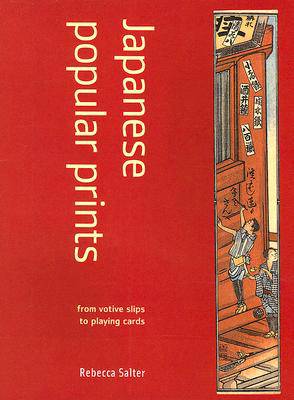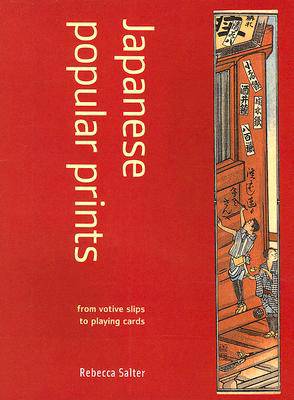
- Afhalen na 1 uur in een winkel met voorraad
- Gratis thuislevering in België vanaf € 30
- Ruim aanbod met 7 miljoen producten
- Afhalen na 1 uur in een winkel met voorraad
- Gratis thuislevering in België vanaf € 30
- Ruim aanbod met 7 miljoen producten
Omschrijving
In the West, Japanese woodblock printing tends to be associated with the ukiyo-e tradition and the familiar portrayals of kabuki actors or courtesan beauties. These well-known images were produced by a publisher and artist using the extraordinary skills of carvers and printers, whose identities are rarely known. The same craftsmen also produced woodblock-printed objects for use in everyday life such as decorative paper (chiyogami), votive slips (senjafuda), playing cards (karuta), and board games (sugoroku). As the market changed in the late nineteenth century, the craftsmen increasingly turned to the production of these low-value, essentially ephemeral objects. Although the prices were kept low, many were imbued with the same glorious visual sophistication that had attracted Westerners to ukiyo-e.
Approaching the subject as an artist rather than a print scholar, Rebecca Salter focuses on the craftsmen and the complex visual culture within which they worked. Through information gained from interviews with some of the remaining practitioners and analysis of the objects themselves, she builds up a picture of the quiet role woodblock played in the lives of the Japanese as they moved from the isolation of the Edo period to embrace modernization in the early twentieth century. This book is a fascinating exploration of this area of cultural history and the numerous color illustrations encourage a playful investigation of the many threads of Japan's visual culture. Rebecca Salter is a well-known British printmaker. She lived in Japan for six years and is an acknowledged authority on Japanese woodblock printing. She is the author of Japanese Woodblock Printing.Specificaties
Betrokkenen
- Auteur(s):
- Uitgeverij:
Inhoud
- Aantal bladzijden:
- 208
- Taal:
- Engels
Eigenschappen
- Productcode (EAN):
- 9780824830830
- Verschijningsdatum:
- 30/06/2006
- Uitvoering:
- Paperback
- Formaat:
- Trade paperback (VS)
- Afmetingen:
- 193 mm x 245 mm
- Gewicht:
- 666 g

Alleen bij Standaard Boekhandel
Beoordelingen
We publiceren alleen reviews die voldoen aan de voorwaarden voor reviews. Bekijk onze voorwaarden voor reviews.











